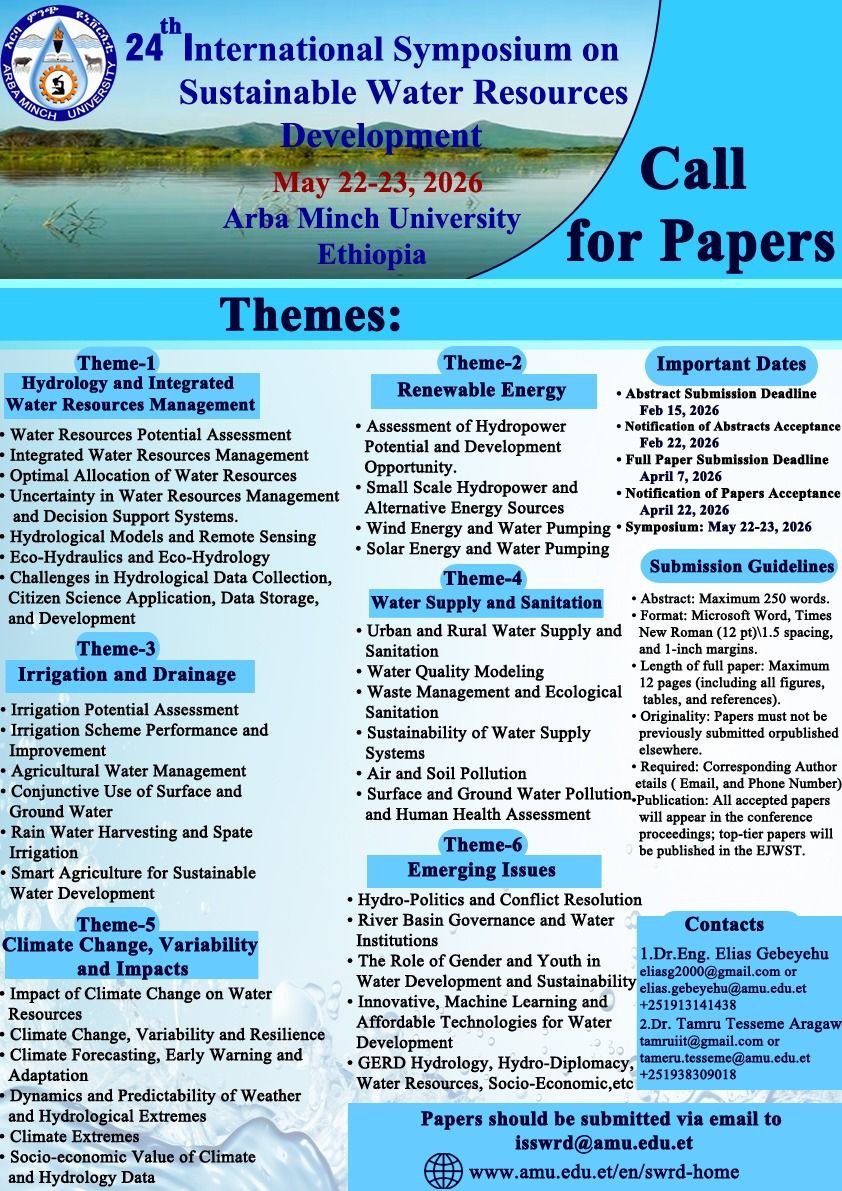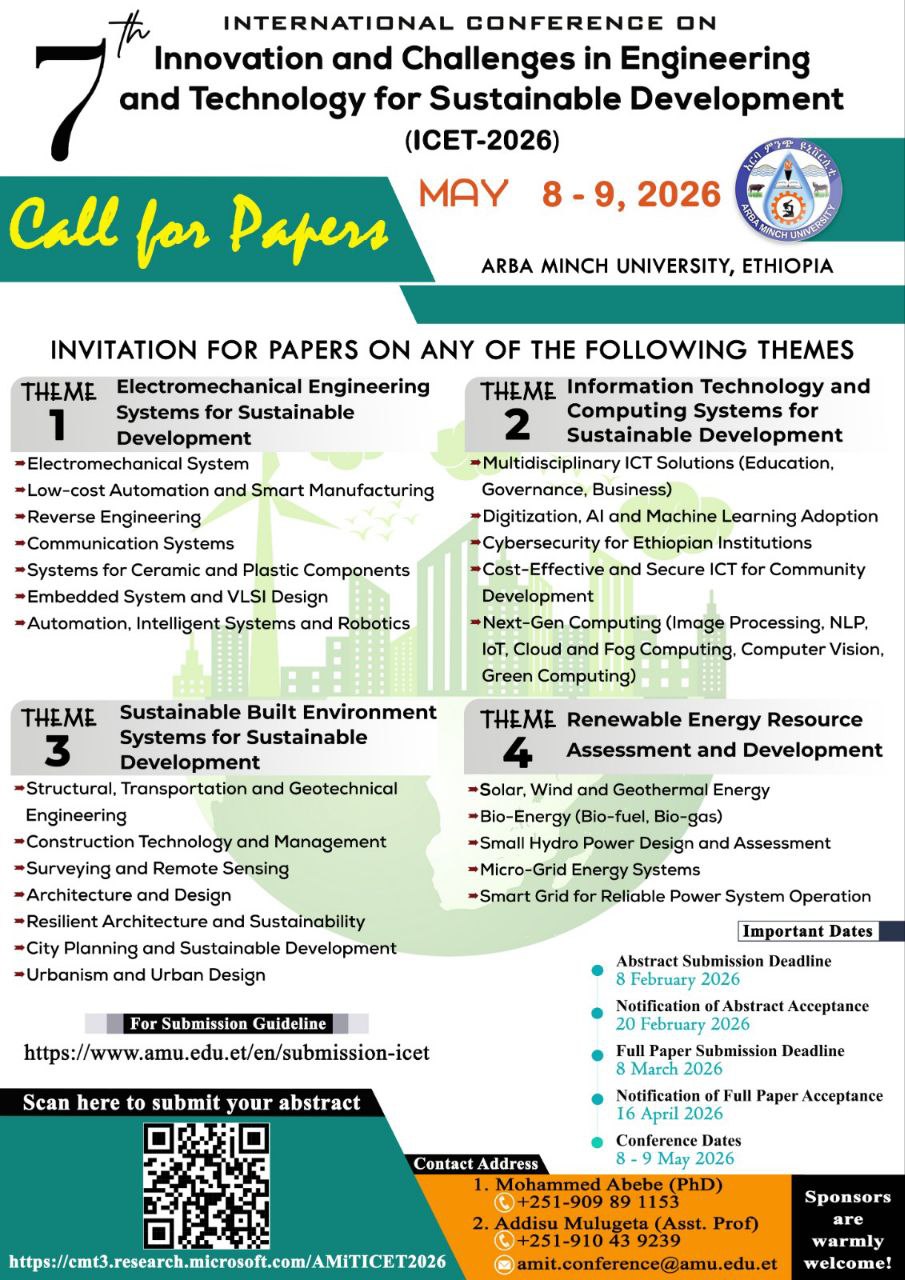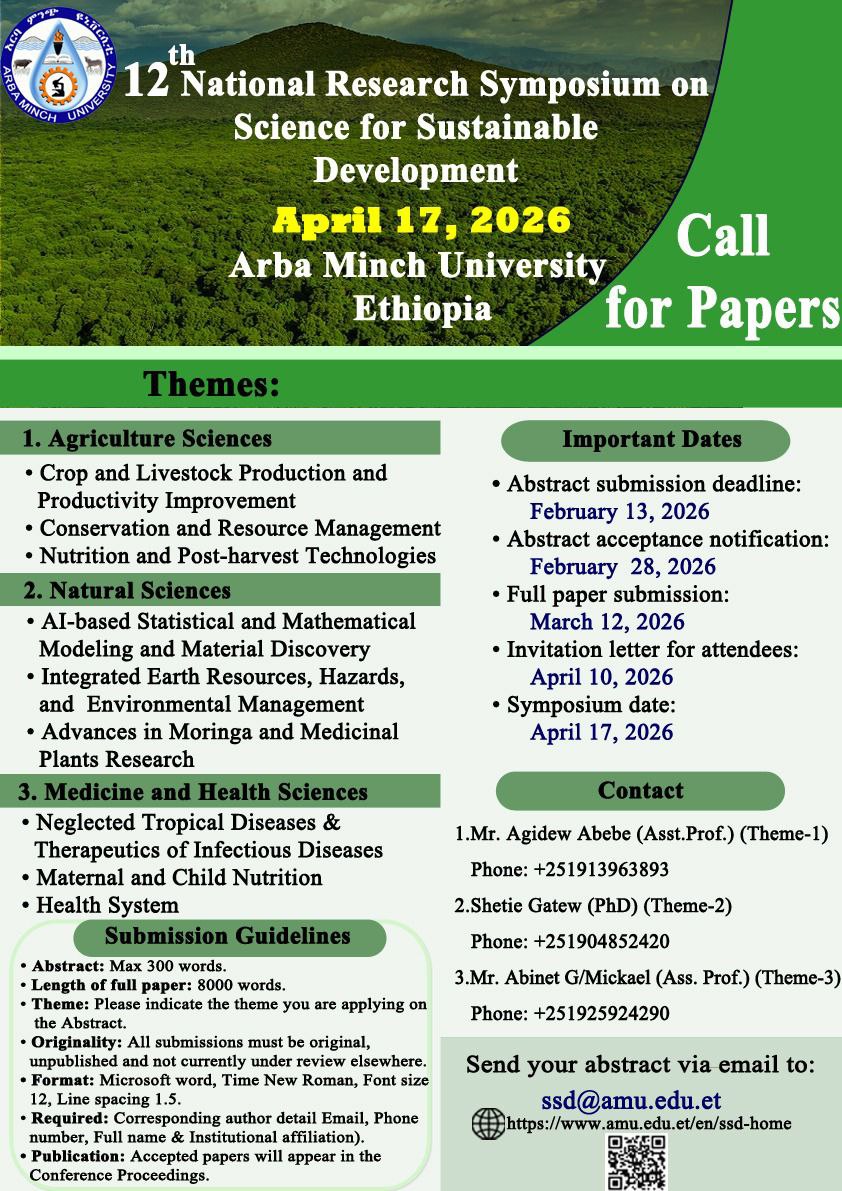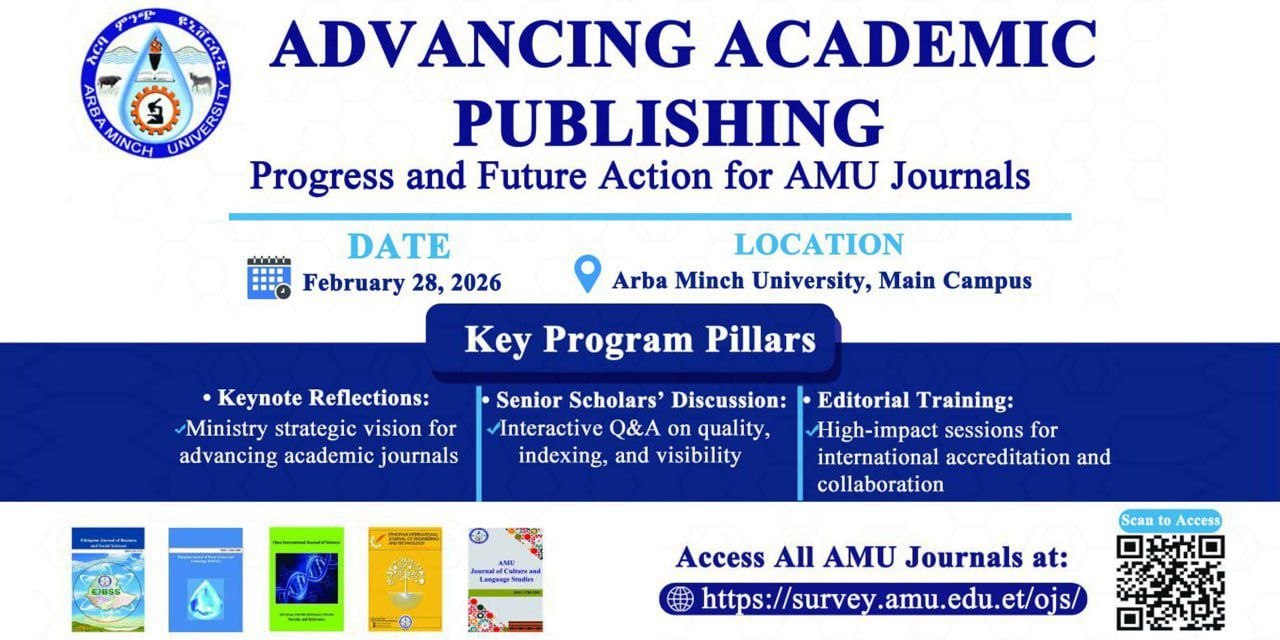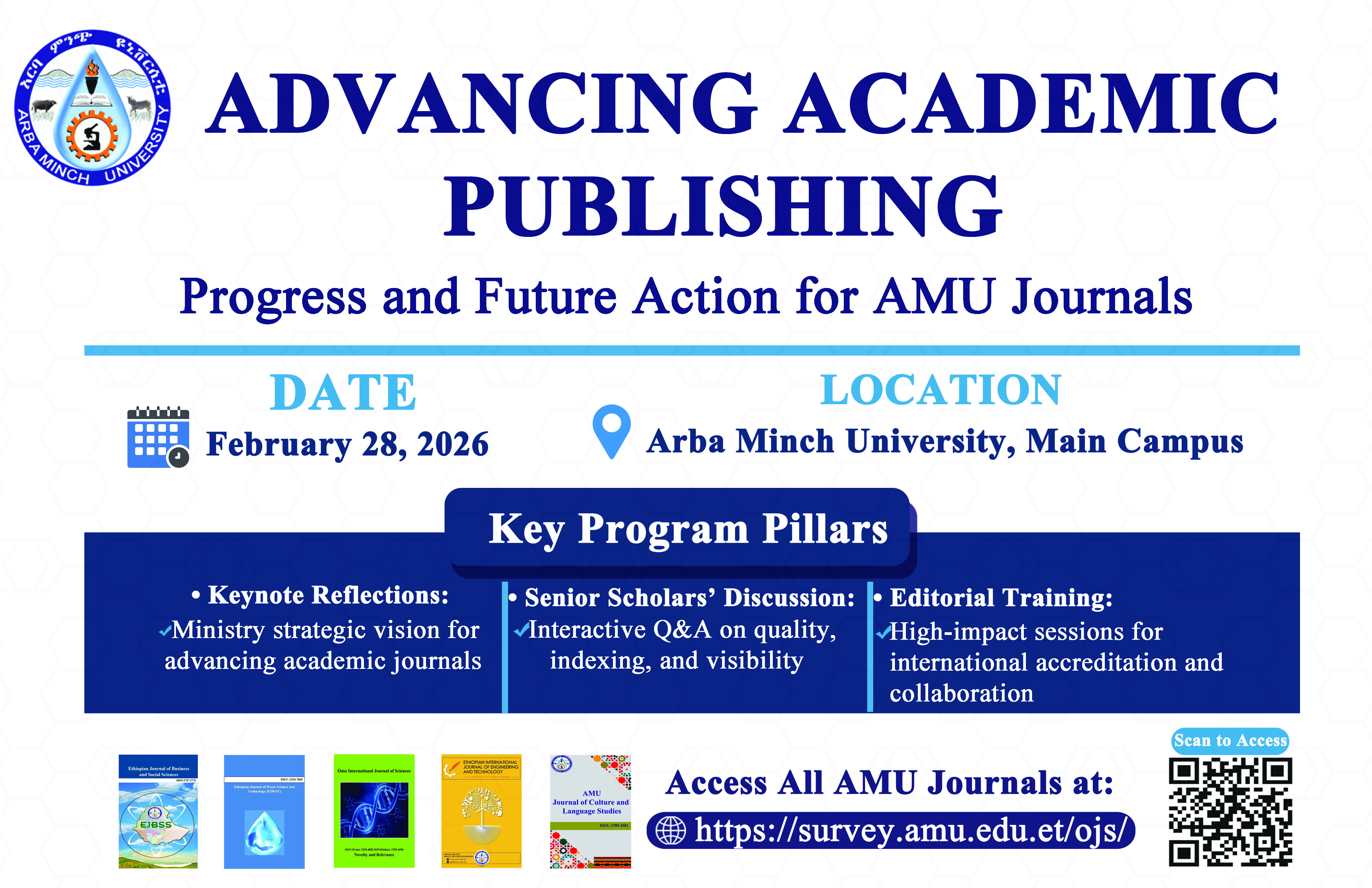‘‘Today’s workshop on “Impact of flooding on human settlement in rural households in Gambella region in Ethiopia,’ falls under the umbrella of sustainable water resource development plan that ultimately addresses the current and emerging issues related to the changing climatic conditions, said AMU President, Dr Feleke Woldeyes.
Dr Feleke underscored these strategic points in a daylong validation workshop on flooding and its impact jointly organized by the Institute of Technology (IoT) and United Nations Economic Commission for Africa - African Climate Policy Centre (ACPC – workshop sponsor) at Lecture Theatre on 3rd March, 2014.
Delineating further, he said, the world has been experiencing the extreme weather conditions like drought and flood that jeopardized the lives of millions. The frequency of such events is increasing due to global warming and other atmospheric and terrestrial dynamics over the past few decades. The impact is more profound and noticeable in the developing countries like Ethiopia and this has exacerbated the deterioration in social, environmental and economic dimensions.
The endeavor in Gambella regional states by AMU and collaborating partners which gave us the adoptive strategies could be used in other basins such as Omo and Awash flood plain where similar problems are known to occur, he emphasized.
The workshop began with IoT Scientific Director, Dr Negash Wagesho, introducing the participants. The symposium saw four interesting presentations during the day. It began with ACPC’s Dr Yosef Amha titled, ‘Highlight on the ‘Loss and Damage Project’.
He appraised the gathering about ACPC has been conducting studies with various institutions in Burkina Faso, Ethiopia and Mozambique and collaborated with two case studies done by the United Nations University, Kenya and Gambia.
To make headway, he wants to scale-up the methodology, design outreach strategy & advisory services and explore additional research domains for loss and damage assessment.
Dr Negash in his research findings, along-with Dr Alemseged Tamiru, IWMI, and Mr Ermias Alemu, AMU, aimed to provide empirical evidence on the loss & damage caused by floods as a result of household level inability to fully cope or adapt to impacts.
The study was meant to come up with a story on Household’s experience as to how people deal with floods, its impacts (social, economic, environmental, infrastructure) to contribute to special issue on loss & damage.
The research was carried out at Itang Woreda, Baro floodplain (21 Kebeles) in the area of 2,188 km2 with population of 42,000. The quantitative (household survey using structured questionnaire) and qualitative data, walk-in survey and participatory mapping (PGIS mapping) methods were employed.
The study states the region has frequently been affected by extreme flood over the last couple of decades. Loss of life and property observed during extreme flood events, however, flood is the driving force for their livelihood (recession farming, fishery, and livestock). And local coping practices helped the community to act against recurrent damages.
Dr Alemseged Tamiru in his study with Dr Negash and Ermias Alemu presented a paper on ‘Community participation to enhance understanding of flood dynamics & impact in Itang.’
Mr Ermias presented paper on ‘Adaptation Mechanism for Flood Damage:
Case from Gambella Region of Ethiopia.’ The workshop sessions were interspersed with discussions and question-answers, which would fine-tune the final draft.
Later, participants split into three groups, deliberated key issues and came up with pertinent recommendations which will be incorporated in the final draft on the three quintessential issues i.e. living with floods in Itang, participatory study and gender issue and policy recommendations for flood management
The workshop was attended by AMU vice presidents, Dr Agena and Dr Kassa and some of the directors. Of 51 participants, there were representatives from IWMI, ACPC-UNECA, Gambella Technical School, DPFS, Itang Special Woreda’s Disaster Prevention and Food Security Head office and AMU.
Closing remark was made by Water Works Design & Supervision Enterprise’s Deputy Chief Executive Officer, Dr Negede Kassa.
By Philips Joseph


